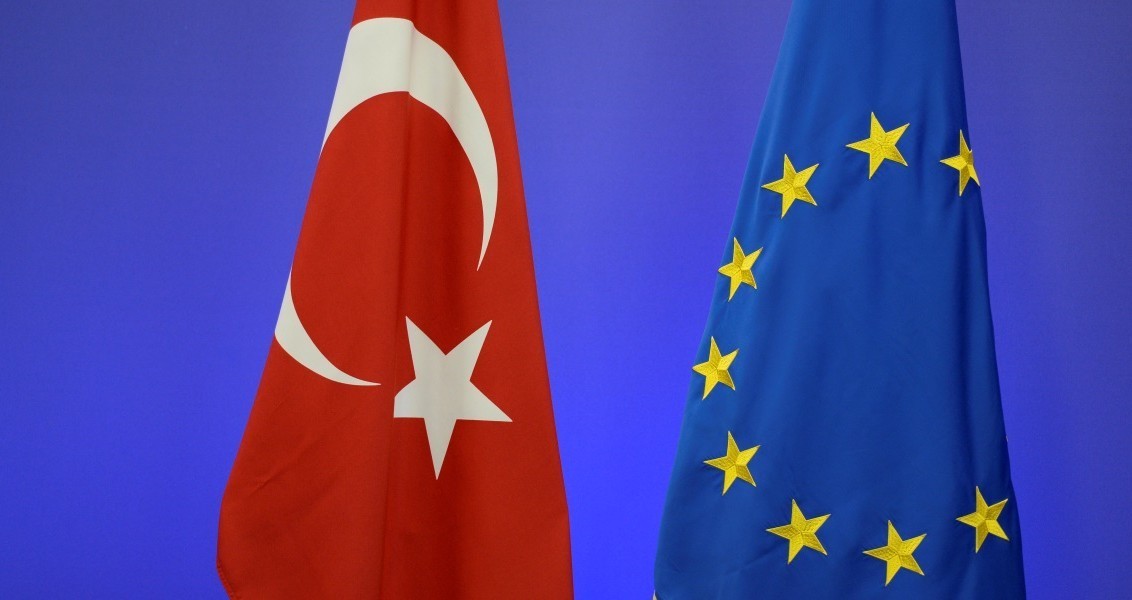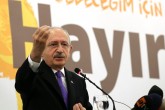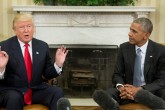Turkey-Europe relations are going through their most intense period since the establishment of the European Union. While throughout this period there have been occasions when relations had become strained, nothing quite like the current overwhelming mutual opposition has ever occurred. In the past, a large part of Turkey’s political elite would have always blamed Turkey whenever relations soured and, in reaction, they would criticize the administration for creating rifts in our relations. A large part of Turkey’s public used to share this perception and believe that behind the scenes of the souring relations, the blame must surely lie in a Turkish misstep.
Today, the situation is very different. Turkey-Europe relations are more strained and problematic than ever before. Nowadays, many from among Turkey’s political elite and public are now blaming the European states for the negative turn. With Germany, Holland, Switzerland and Austria foremost among them, the attitudes of the European countries toward Turkey can now be considered “hostile.” As I have consistently stressed in my Daily Sabah columns over the years, the greatest illusion the European political elite ever had was regarding President Recep Tayyip Erdoğan as a temporary and easily removed political actor. During my meetings with various names in media and politics, I have consistently encountered an attitude of, “If we get Erdoğan out of the picture, we can re-establish good relations with Turkey.” Each time, I underlined the following three points. One: Erdoğan is an inseparable part of Turkey’s socio-political reality. Two: Every step Erdoğan takes is a direct result of a strong current of political change. Three: Taking Erdoğan out of the picture does not mean a removal of the political vision Erdoğan represents. On the contrary, depending on the method by which Erdoğan is taken out, this vision could even further cement itself in the administration of Turkey with even stronger representation.
However, these discourses and warnings have received no response. Erdoğan continues to be vilified in both European domestic policies and in popular culture. As the media continued to produce caricatures, articles and headlines insulting Erdoğan, politicians continued with their harsh discourse against him. Anti-Erdoğanism was first placed on the agenda of European politicians, bureaucrats and media actors as a factor in designing Turkey’s domestic politics. Thus, leading to support for a Turkey without Erdoğan. Incidents like the Gezi Park protests, the Kobani rebellion between Oct. 6-8 and first the judicial, then military coup attempt by the Gülenist Terror Group (FETÖ) were widely regarded with sympathy. Throughout these processes, people attempted to change the administration through non-democratic means and by creating chaos. They were supported, but not by those on the side of Turkey’s democracy and political stability. Moreover, the activity of organizations such as the PKK and the Revolutionary People’s Liberation Party-Front (DHKP-C) — groups Turkey has been fighting against for years and who are de jure “terrorist groups” but regarded as de facto legitimate political actors by Europe — were allowed to spread. In the end, the aim was to create a Turkey without Erdoğan.
The anti-Erdoğanism in Europe transformed into being anti-Turkey, and the intensity of this opposition is growing day by day. Not only is it intensifying, but attacks against Turkey are being carried out openly and without any sophistication. Moreover, the xenophobic attitudes toward Turkey that came yesterday from the “extreme right,” today come from the “center-right” and even the “left.” In fact, when Turkey is the subject, European countries seem to be able to put aside their own internal disputes to face their common “foe.”
The discrepancies in Turkey’s domestic politics and the attitude of Turkey’s political leadership do not lie at the center of the negative course that the Europe-Turkey relation has taken. Basically, the big picture demonstrates Europe’s attempt to hide its own internal discrepancies and to establish its own internal integrity, solidarity and unity by being anti-Erdoğan, then anti-Turkey, and most recently, anti-Islam. Suffering from a serious economic crisis since 2008, the loss of the middle class, the meltdown of the social state and its inability to gain strong political leadership, Europe seems to simply be attempting to get through the day.
The potential oppressive environment that the new U.S. administration could create has already gripped Europe. Europe is not in a position to create a concrete response in the face of the Russian threat. In such an environment and due to the negative steps taken against Turkey, it is not possible for Europe to maintain its clout and moral superiority among Turkey’s political elite or its public. In the end, Europe really needs to get its act together.
[Daily Sabah, March 31, 2017]
In this article
- Foreign Policy
- Opinion
- 2008
- 2017
- Anti-Erdoğanizm
- Anti-Islam
- Anti-Muslim
- Anti-Turkish Sentiment | Anti-Turkism | Turkophobia | Turkish Fear
- Austria
- Daily Sabah
- Europe
- European Union (EU)
- Extreme Right
- Far-Right
- Fethullah Gülen
- Fethullah Terrorist Organization (FETÖ)
- Germany
- Global Actors | Local Actors
- Gulen Community
- Gülen Movement
- Gülenist Terror Group
- Gülenist Terror Organization
- Hizmet Movement
- Islam
- Islamophobia
- Istanbul
- Kobane
- Kurdistan Workers' Party Terrorist Organization (PKK)
- Marginal Right
- May 28-August 20 2013 The Gezi Park Protests
- Opposition
- PKK - YPG - SDF - PYD - YPJ - SDG - HBDH - HPG - KCK - PJAK - TAK - YBŞ
- Recep Tayyip Erdoğan
- Revolutionary People’s Liberation Party-Front (DHKP-C)
- Russia
- taksim
- Terror
- The President of the Republic of Türkiye
- Turkish President
- United States (US)
- Xenophobia



